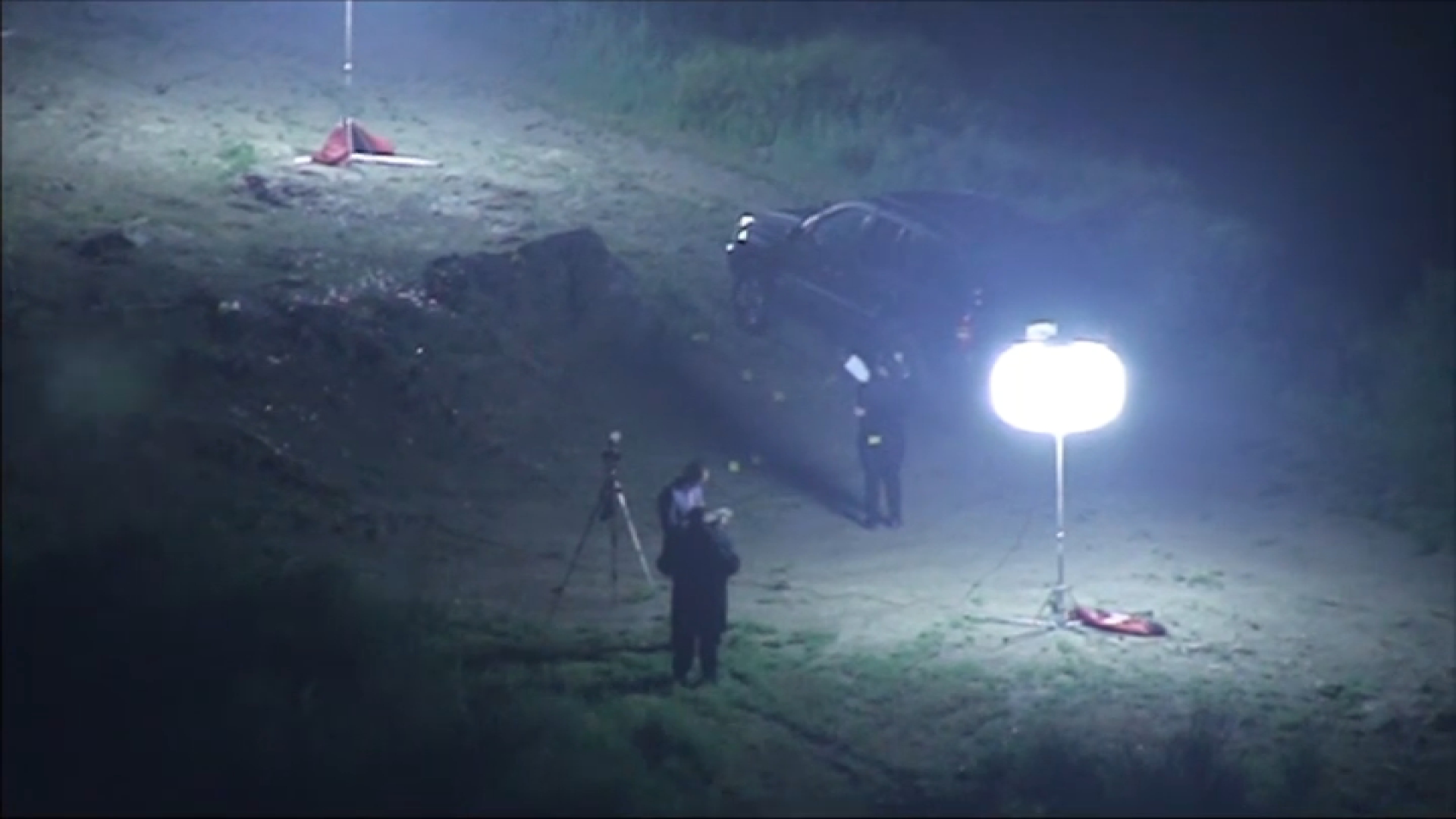Matt Ward is a 24-year-old with a resume that includes political consulting and a small business in the electronics trade.
He's also one of the founders of Occupy LA.
There is no single story of how individuals come to identify with the disparate movement that has spread from Wall Street to communities across the country.
But Ward's seemingly unlikely journey from political insider to street protester highlights a degree of frustration with conventional channels to change that appears to be a major draw among participants in the Occupy movement.
"Now, where we find ourselves is a completely untenable position where the income disparities are greater than I think they've ever been," Ward said.
Two years ago, Ward, an Ohio native, drove to LA with his girlfriend in his 1996 Accord. She was headed for fashion school and he began building his political experience, volunteering as a canvasser on an LA city council campaign and taking on work at a Redondo Beach-based political consulting firm.
But he was growing increasingly dissatisfied.
“I just felt like political campaigns have become so shallow and every political campaign is just based off of seven talking points, the same talking points,” he said. Politics, he said, was "driving me insane."
When the Occupy Wall Street movement starting taking off, Ward decided he would join in. He soon realized he didn't need to cross the country to participate.
He joined the protest of a West Hollywood fundraising dinner for President Barack Obama, an event that solidified his disenchantment with politics as usual.
“We were protesting the fact that presidents had to charge $15,000 a plate in order to reach the highest role in the country, which means they necessarily must be bought and paid for by the time they get there,” Ward said.
Local
Get Los Angeles's latest local news on crime, entertainment, weather, schools, COVID, cost of living and more. Here's your go-to source for today's LA news.
"Right now, corruption runs so deep that we can’t even fathom decent people getting into office without being corrupted, myself included.”
Soon after that night, Occupy LA was born.
Now he spends his days and nights camped out on the city hall lawn among hundreds of tents, belonging to people from all walks of life.
For income, he spends part of his time running a business, importing electronics from overseas. His girlfriend is now an assistant production manager for a swimwear company.
Ward estimated that about 30 to 50 full-time core members make up the heart of the Occupy Los Angeles movement.
On a recent day, two "Occupiers" were perusing the books in a makeshift library in the camp, engaged in conversation about how the small collection of books began.
“In the free library is all kinds of information,” said one man who went by the name Tribal. “This is a place that is available for you to come down and share it with everyone else.”
In explaining the makeshift library, Tribal pointed to the bigger picture of the movement.
“See, information is the hottest commodity sold worldwide,” Tribal said. “Unfortunately, not everyone is able to afford it.”
Gabriel Harris, an Australian who has lived all over the world, referenced a childhood board game to relate to the global conversation around the Occupy Movement.
“You know Monopoly was created by a Quaker to show if one person owns all the property, how it impoverishes everyone else?” Harris asked.
“Hmmm,” Tribal nodded.
By design, there is no single leader of Occupy LA, because, according to Ward, having just one leader could diminish the movement's collective purpose.
“If I’m chasing every camera and trying to lead every march, very quickly the appearance will arise that I’m trying to usurp this for myself,” Ward said.
“The message that we try to get everybody to embrace is that this is bigger than me, this is bigger than me, this is bigger than me,” said Ward, who said he wanted to help create change that would matter for future generations.
“This is bigger than all of us. By the time we get to the third generation, we're going to be fighting this battle all over again," Ward said.
Ward said he is certain of what started the movement, but he said he is far less sure of what happens next.
“Nobody exactly knows what the end game is,” said Ward.
“I think at this point there’s still a fundamental conversation that we need to have about whether this is about reform or whether this is about revolution.”
Follow NBCLA for the latest LA news, events and entertainment: Twitter: @NBCLA // Facebook: NBCLA



